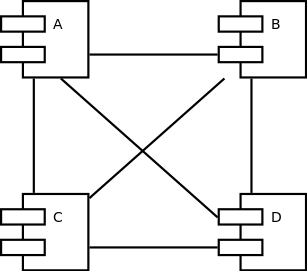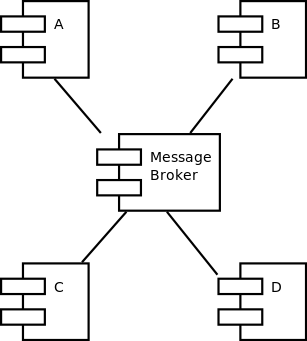|
KISSCPP
a C++ library for rapid application development
|
|
KISSCPP
a C++ library for rapid application development
|
In any message based system you have shared functionality across applications.
The ability to send, receive, parse and process messages, is a technical problem that should be centralised in a simple library.
KISSCPP provides a framework and an application level communications standard, allowing developers to create message based systems quickly and easily. It provides the major functionality for creating client-server applications in C++, while allowing developers to focus on getting business rules implemented.
Take for instance, the two theoretical message based system as described in below:


Both these architectures have their own problem sets when dealing with code maintenance and application deployment. Depending on the situation you are facing, you could decide to use either one.
KISSCPP currently leans more towards solving the distributed message based system. This will only be the case while a message broker using the KISSCPP library, does not exists. This is currently in planning phase and will be released as a separate project.
I wanted to, really, how awesome would it be to say I use Google's cool stuff :) But there is the real world of business needs, a world where:
0mq lacks one huge feature: Persistence! There are other issues with it, but persistence is the big one.
GO is too young to know wither or not it will stick and become an industry standard. If it does, that would be awesome, but I don't see a future where big corporates are going to re-factor towards using GO for their server side components.
 1.8.6
1.8.6